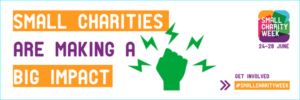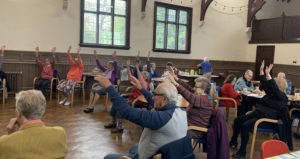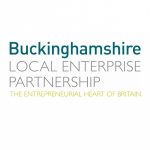As a data enthusiast, and manager of the Bucks Data Exchange, it’s remarkable to see how data is at the forefront of so many people’s minds in the VCSE sector. We can see evidence for this in the Charity Digital Skills report – an annual barometer of skills, attitudes and digital support needs across the UK’s VCSE sector. Getting more from data was the number one thing that charities wanted to achieve as they improved their digital skills – well above using digital to get more funding, improve their brand or develop services. The Charity Digital Skills survey runs every year, and data has been rising up the priority list.
So why is data important? And beyond digital, why should we care about data? In other words, what is the rationale for the Bucks Data Exchange?
There are many reasons why people see the value in data, but the thing that gets me most excited is using data for decision making. Good data means understanding people’s needs and enabling charities, funders, and communities to make better informed decisions about how support should be targeted. Data can help make projects more impactful and can help make the case for vital services and initiatives. As the footprint of the pandemic lingers and the cost of living crisis bites, targeting this support is all the more important.
The building blocks for VCSE sector data infrastructure have been well laid over the past 10 years or so and the good news is that data already supports a great deal of decision making. From the expansion of research and evaluation teams at large charities, to the development of 360Giving which publishes open data about grants, a lot of effort is put into understanding where the sector’s focus should be. But in Buckinghamshire there has been a missing piece of the ‘local’ puzzle. The majority of charities operating in Buckinghamshire are small, with the Charity base platform estimating that well over half of all local charities have annual incomes of less than £30k. There is no scope in such small charities for data teams. But these organisations need data just like the big charities from which to make decisions.
The pandemic sharpened people’s minds to this issue, and a group of local funders, charities and the Council got together to share data and wanted to share Bucks specific insights with smaller organisations in the county. This is how the Bucks Data Exchange was born.
We ran workshops, consultations and held events to find out what local VCSE organisations would find useful. In the winter of 2021/22 we ran a survey and found that 89% of respondents were interested in additional support to develop their data skills and that 94% of those who attended our events wanted to keep on engaging with us. It showed us there was clear demand for Bucks specific data and insights.
We had 1-1 meetings with small charities and tested ideas for what a digital data sharing platform might look like. We heard that there was an overwhelming desire to use data for decision making, but that organisations were time-poor, often lacked analytical skills, and needed to find insights quickly. The survey also revealed that many organisations had data that they were willing to share, but rather than supplying us with raw CSV’s they wanted to explain the context of the data, its meaning and limitations.
All of this feedback has shaped the design and implementation of the Bucks Data Exchange digital platform, which I am delighted is going live. We’ve worked collaboratively as a partnership to create content – much of it written by data analysts with subject matter expertise at the Council. Bucks specific insights can be searched by topic area (e.g. population, health and financial insecurity) and there is a resource library signposting users to relevant external resources. Each topic contains a range of datasets with an accompanying narrative explaining the context and often comparing Bucks to other counties or the country as a whole.
We’ve launched the platform with Bucks “slices” of important national datasets, but we are looking forward to adding more data from local VCSE organisations to build an even bigger picture of the needs of people and provision of support in Buckinghamshire.
So please take a look, explore what’s going on in Buckinghamshire through the data – and absolutely get in touch if you have data to share.
Ellie Harries
Bucks Data Exchange Manager
September 2022
The views expressed in this blog are the views of the author and do not represent the views of affiliated organisations.











